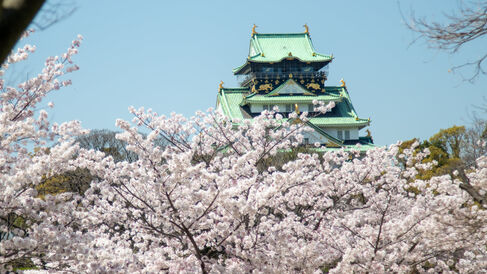Japanese Studies

Japanese is a complex and fascinating language through which you can access and comprehend the rich culture of a country that plays a considerable role in the international community, and that constitutes the world’s third largest economy. Japanese Studies at Cambridge brings together a vibrant community of students, graduate students and scholars. Your instructors are internationally distinguished in their fields and care deeply about delivering the best possible education tailored to you as individuals.
By choosing to pursue Japanese Studies with us at Cambridge, you will:
- master the Japanese language to an advanced level rarely offered in other centres of higher education
- develop in-depth understanding of Japan within the wider East Asian region
- develop transferable skills that are highly sought-after by employers and lead to a successful career
Most of all, our Japanese Studies programme teaches you to think innovatively and develop the flexibility to relate to diverse cultures, both necessary skills for becoming an invaluable asset in the world.
Required subjects for entry
We welcome students from a wide range of backgrounds. No previous knowledge of Japanese is required to study with us.
Our course is not suitable for native speakers of Japanese.
Starting 2027-28, there will be a bespoke pathway for students who join us with a level of Japanese above what is expected in the first year, but below what is expected in the second year.
An overview of our course
Our course (‘Tripos’) is unique for combining intensive and fast-paced study of the Japanese language with the chance to specialise in specific areas of Japan according to your own interests. Lectures and seminars are combined with personalised supervisions to create a catered form of education that empowers each of you as active learners while providing caring support and thoughtful guidance.
First year (Part IA): Gaining solid grounding
The focus in the first year is on language learning. You will devote roughly 75 percent of your time to the study of all aspects of Japanese. By the third term you will have already acquired the skills that will enable you to read real world texts. While developing a solid grounding in the language, you will study Japanese history and culture within the context of the wider East Asian region.
Second year (Part IB): Going deeper and broader
Language classes in the second year take you through intermediate to early-advanced Japanese. Meanwhile you further your studies in a variety of disciplines, including Japanese history, literature, society, politics, visual culture and pre-modern Japanese. You can also choose from cultural papers in Chinese Studies and a cross-departmental paper on East Asian media and popular culture. With the help of your instructors, you will start identifying the area and topic that you wish to research for your undergraduate dissertation.

Third year: Year abroad
You are required to spend at least 8 months in your third year studying Japanese in Japan. This is an excellent opportunity to experience life in Japan first hand, while honing your language skills.
Students normally study at a Japanese University. Several options include:
- Doshisha University (Kyoto)
- Hitotsubashi University (Tokyo)
- Kanazawa University (Kanazawa, near Tokyo)
Many students are successful in securing the generous MEXT Undergraduate Scholarship in Japanese Studies, offered by the Japanese Ministry of Education, Culture, Sports, Science and Technology (MEXT). This gives you the opportunity to study at other Universities (recent examples include Sophia University, Hokkaido University, Osaka University, among others).
The Japanese Studies subject group also offers some limited funding to Japanese Studies students travelling to Japan, thanks to the kind support and initiative of former students and staff. This limited fund is designed to assist students who are in receipt of a College bursary, or can demonstrate financial need and who are performing well in their studies.
Internships
Our students have access to several exciting and unique internships during the summer vacations and/or during the Year Abroad. These internships offer you invaluable working experience while practicing your Japanese, as well as opportunities to connect with companies that have a genuine interest in hiring our graduates.
Fourth year (Part II): Generating knowledge
Your Japanese is so advanced that you can now read and discuss a variety of sources. Japanese language is still taught with the aim of preparing you for professional Japanese-speaking environments. You can also choose from a range of elective papers through which to gain a deeper understanding of the disciplines that interest you. Your dissertation now comes together in an original piece of writing that opens new horizons in the field of Japanese Studies.
Beyond your time at Cambridge
We keep regular contact with our alumni who have established rewarding careers in a wide range of professions around the world, these include: teaching, translating, interpreting, banking, academia, publicity, journalism, diplomacy, business, popular culture and many, many more.
